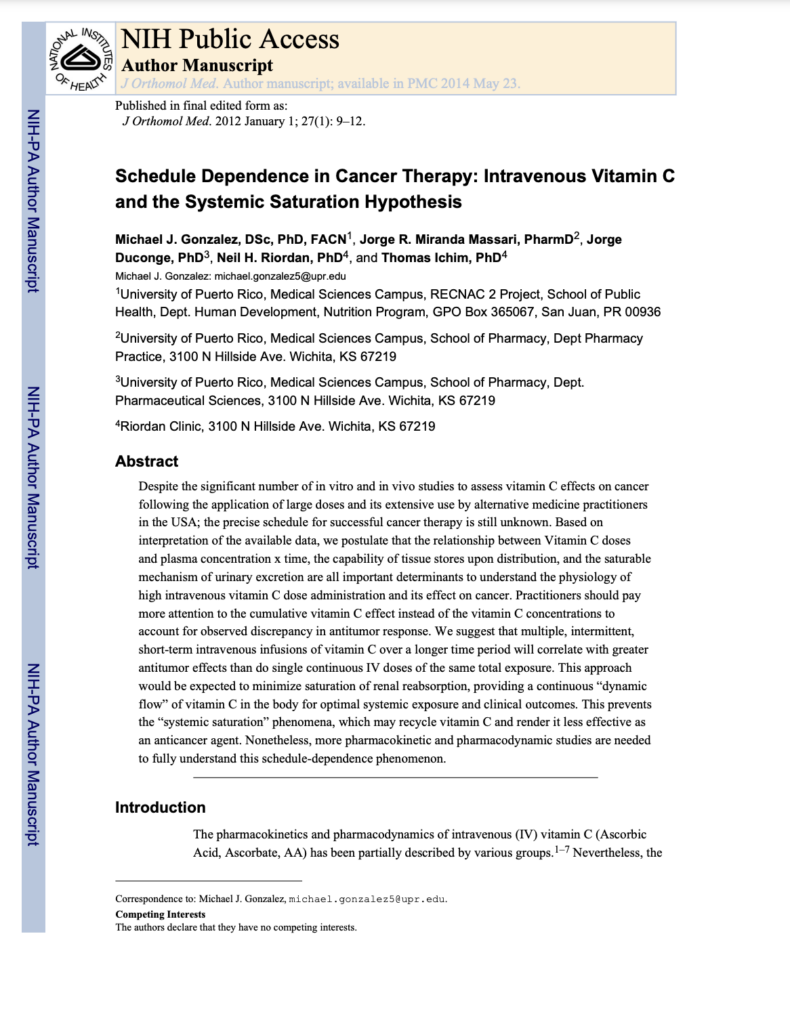January 2012
Schedule Dependence in Cancer Therapy: Intravenous Vitamin C and the Systemic Saturation Hypothesis.
Journal Citation
J Orthomol Med. 2012 Jan 1; 27(1): 9–12
Authors
Gonzalez MJ, Miranda Massari JR, Duconge J, Riordan NH, Ichim T.
Abstract
Despite the significant number of in vitro and in vivo studies to assess vitamin C effects on cancer following the application of large doses and its extensive use by alternative medicine practitioners in the USA; the precise schedule for successful cancer therapy is still unknown. Based on interpretation of the available data, we postulate that the relationship between Vitamin C doses and plasma concentration x time, the capability of tissue stores upon distribution, and the saturable mechanism of urinary excretion are all important determinants to understand the physiology of high intravenous vitamin C dose administration and its effect on cancer. Practitioners should pay more attention to the cumulative vitamin C effect instead of the vitamin C concentrations to account for observed discrepancy in antitumor response. We suggest that multiple, intermittent, short-term intravenous infusions of vitamin C over a longer time period will correlate with greater antitumor effects than do single continuous IV doses of the same total exposure. This approach would be expected to minimize saturation of renal reabsorption, providing a continuous “dynamic flow” of vitamin C in the body for optimal systemic exposure and clinical outcomes. This prevents the “systemic saturation” phenomena, which may recycle vitamin C and render it less effective as an anticancer agent. Nonetheless, more pharmacokinetic and pharmacodynamic studies are needed to fully understand this schedule-dependence phenomenon.

